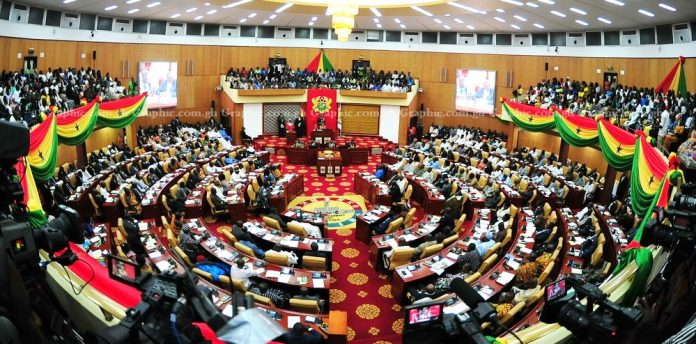The Member of Parliament (MP) for Klortey Korle Hon. Zanetor Rawlings has called on government and all stakeholders to take steps to ensure that Persons With Disabilities (PWDs) are well protected so that they can make investments to empower them with jobs, adequate healthcare, nutrition, education and relevant skills for social protection.
Zanetor believed this is the only way to carry PWDs along in order to empower them to take advantage of opportunities due them so as to work together and eliminate the barriers of stigmatization and discrimination.
The MP, who is also medical practitioner, lamented that disabled people in Ghana continue to experience various forms of discrimination and social exclusion despite the fact that there are several anti-discriminatory laws that are meant to protect their rights and facilitate their participation in mainstream social, political and economic activities.
She subsequently commended the House in passing the Persons With Disability Act 2006 (Act 717) which makes elaborate provisions for the protection of the rights of PWDs.
The MP however bewailed that in spite of the passage of this law, persons with physical, intellectual or emotional disabilities continue to face social stigma as evidenced by inequalities in access to employment, education, healthcare and use of public places and facilities.
These were contained in a statement she delivered to the House to mark the 2019 International Day of Persons With Disabilities, a day set aside by the United Nations (UN) to promote empowerment and help create real opportunities for persons with disabilities.
The Klottey Korle MP explained that the laws, as they stand, have not completely eroded the discrimination that disabled persons experience regretting that even in some instances they appear completely rejected.
This situation, she noted, seems to even institutionalise their discrimination. The MP took this opportunity to challenge the state to pay more attention to amending aspects of these laws and putting them into practice.
Zanetor further stressed that the Disability Act needs serious amendment since the imperfections are very profound thus posing significant challenges to PWDs because as the law stands now their rights are not fully recognised and actively protected.
She posited that as long as the Act remains in its present state, disabled people will continue to suffer many forms of hardships in their social lives, and what ought to be considered as a matter of protecting their social rights will be seen as social welfare provision.
The MP emphasized that the state cannot, and should not allow negative stereotypes such as erroneous beliefs about the functional incapacity of disabled people, repressive traditional beliefs and supposed financial constraints to get in the way of the rights of disabled people.
She called on the government and its significant political actors to act in the supreme interest of humanity in general, and disabled people in particular, to ensure adequate sensitization of the general public to desist from marginalising PWDs.
Zanetor concluded her statement with a call to retrofit public places and make public services accessible to PWDs and in addition, provide and resource health faculties that will carry out early assesment to provide the necessary support for PWDS.
Members in their contributions reiterated that disabled people continue to experience various forms of discrimination and social exclusion despite the fact that there are several anti-discriminatory laws that are meant to protect their rights and facilitate their participation in mainstream social, political and economic activities.
The lawmakers disclosed that Ghana has several legal and constitutional provisions that are meant to protect socially disadvantaged people.
These include signing the UN Convention on the Rights of People with Disabilities in 2007 and ratifying it in 2012 to become the 119th country in the world to do so and the 32nd in Africa.
They expressed their reservations about the definition of a disabled person in The Disability Act as an individual with a physical, mental or sensory impairment including a visual, hearing or speech functional disability.
Touching on the definition of disability on biomedical lines, the lawmakers noted that this definition is an implicit endorsement of discrimination because they tend to institutionalise the individual model of disability by providing legal foundation for its existence.
The Honourable Members stated that the offer to train and educate disabled people away from the mainstream of social life, is an institutionalisation of their marginalisation by the same law which ought to integrate disabled people into society.
The House resolved that discussions on disability rights are not romantic forays into advocacy and activism but rather the fundamental, indivisible and inalienable dignity and appropriate standards and conditions necessary for disabled people to live decent and equal lives.
The august therefore agreed that educating the general public against stigmatisation and discrimination against disabled people will be as important a complementary action as passing and implementing the comprehensively amended, improved and thoroughly anti-discriminatory pro-inclusion legislation.
Source: Parliament Public Affairs





